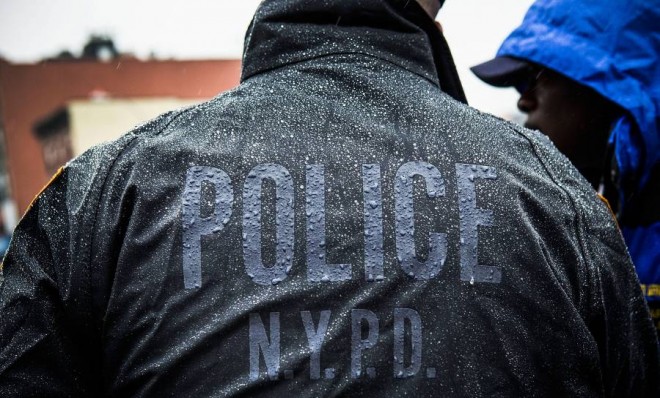Why 'stop and frisk' is worse than NSA surveillance
We have to make distinctions between what gives us the willies and what hurts or harms us


A free daily email with the biggest news stories of the day – and the best features from TheWeek.com
You are now subscribed
Your newsletter sign-up was successful
My black friends in New York, particularly those who don't live in the fancier precincts of Manhattan, have been harassed by the NYPD in a way that I, as a white guy, will never experience.
They've been stopped and frisked, for reasons known only to the officers. Almost every young black male I know has a story to tell.
The news today that a federal judge found this deliberate policing policy to be unconstitutional is a welcome one.
The Week
Escape your echo chamber. Get the facts behind the news, plus analysis from multiple perspectives.

Sign up for The Week's Free Newsletters
From our morning news briefing to a weekly Good News Newsletter, get the best of The Week delivered directly to your inbox.
From our morning news briefing to a weekly Good News Newsletter, get the best of The Week delivered directly to your inbox.
If you have never been stopped and frisked by a cop, it might not seem like a big deal.
So you lose, what, a few minutes of your time. You get frisked, there's nothing on you, and you get sent on your way. It's like the TSA.
Except that it's not. It's an encounter between powerless citizens and highly empowered police officers. It is scary. The confrontations are often aggressive, which is entirely appropriate from the perspective of the police officer: The person might be carrying. You've been singled out for your proximity to a place where a crime might be committed and because of the way you look, the way you move, the route you take. Your attitude towards the police will harden.
I think the NYPD is by and large an incredible organization and that its policing strategies have made New York City immeasurably safer; the city's minority residents live with much less fear than ever before. But I think the "stop and frisk" policy is overzealous and counter-productive. And I think, in a small but tangible way, the practice harms those who come into contact with it.
A free daily email with the biggest news stories of the day – and the best features from TheWeek.com
The NSA's surveillance capabilities and even its bulk collection programs do not damage or degrade Americans' rights; they do not harm our ability to participate in the political process. (I think the FBI's policies are MUCH more worrisome on that end.) To me, the symbolic harm is enough. I want the bright line to exist to prevent potential abuses by unsavory politicians.
There are many, many important debates to have about civil rights and liberties. Because of the NSA's size, scope, and reach, I would be very concerned if the potential for willful abuse, and by extension, the potential to do something tangibly bad to Americans (and other innocents) was more than negligible. But it is negligible. Figuring out how to make sure NSA does everything right is important, but there is not one iota of evidence that the over-collection, even if it was broad, was (a) willful (b) not immediately reported and (c) ever detected by the Americans whose data passed through computers it shouldn't have.
Yes, it would make me feel weird if I knew that an analyst somewhere was able to read my email; yes, I am totally and resolutely in favor of strong oversight procedures that are recognized by everyone as legitimate; but all the same, I am not being stopped by the police, or tortured, or arrested, or asked not to write something, or harassed, or, really, impacted in any way by that over-collect.
We have to make distinctions between what gives us the willies and what hurts or harms us. We have to make distinctions, fine ones, within topics; the NSA is not the CIA is not the FBI is not the NYPD.
Torture is evil. False wars are evil. Companies manipulating the data they collect to make you buy things and vote for people — that's pretty wicked, too. What NSA does is not remotely close to that. To circle back to the point that's obvious: They're the government. They personify executive power. Our skepticism ought to be higher. I totally agree. But at the same time, we should not invent a caricature of what NSA does in order to polarize the debate about it. The facts don't warrant that, just in the same way that the facts about the history of intelligence collection should absolutely force us to be vigilant.
In the scheme of things, the stop and frisk policy is a greater threat to civil rights than the NSA's bulk collection programs.
Marc Ambinder is TheWeek.com's editor-at-large. He is the author, with D.B. Grady, of The Command and Deep State: Inside the Government Secrecy Industry. Marc is also a contributing editor for The Atlantic and GQ. Formerly, he served as White House correspondent for National Journal, chief political consultant for CBS News, and politics editor at The Atlantic. Marc is a 2001 graduate of Harvard. He is married to Michael Park, a corporate strategy consultant, and lives in Los Angeles.
